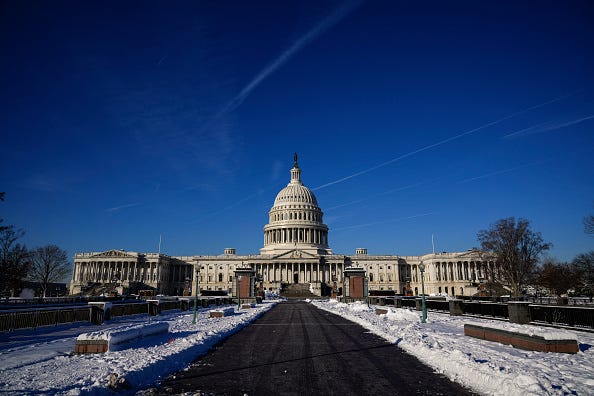
A recent surge in COVID-19 cases from the omicron variant has caused schools and businesses to transfer to a remote setting, and now Congress may soon be joining the telecommuting lifestyle.
The attending physician for the Capitol, Brian Monahan, told members of Congress on Monday that lawmakers and staff members should take greater precautions in protecting themselves.
Monahan shared that the Capitol COVID-19 testing center's seven-day "positivity rate went from less than 1% to greater than 13%" from the end of November to now, NPR reported.
Now, the doctor has advised members to change their workflow and move to remote because hundreds of people having been infected, he said in a letter to congressional offices.
"Congressional offices, Committees, and Agencies should immediately review their operations to adopt a maximal telework posture to reduce in-person meetings and in-office activities to the maximum extent possible," Monahan wrote.
He continued in his letter urging those who choose to stay to swap their cloth face coverings for one that can cover more protection, like N95 or KN95 masks.
New cases are not isolated to only the Capitol, as Washington D.C. is seeing a massive spike in infection rates and hospitalization numbers, the highest of the pandemic.
Monahan also wrote that most of the cases in Congress are due to the omicron and delta variants, with 61% of cases linked to the new variant and 38% linked to delta, as of Dec. 15.
According to Monahan, recent cases also appear to be breakthrough infections, as those getting sick are vaccinated. However, there have not been any serious complications, hospitalizations, or deaths from those who have tested positive on the Hill.
While there has been an increase in cases, Monahan doesn't think people are getting infected at the Capitol.
"While many infections can be detected through workplace testing, the most common risk of acquiring infection is the individual's activities outside the workplace, such as attendance at receptions, entertainment venues, celebrations, family gatherings, travel, and crowded indoor situations," Monahan said.


